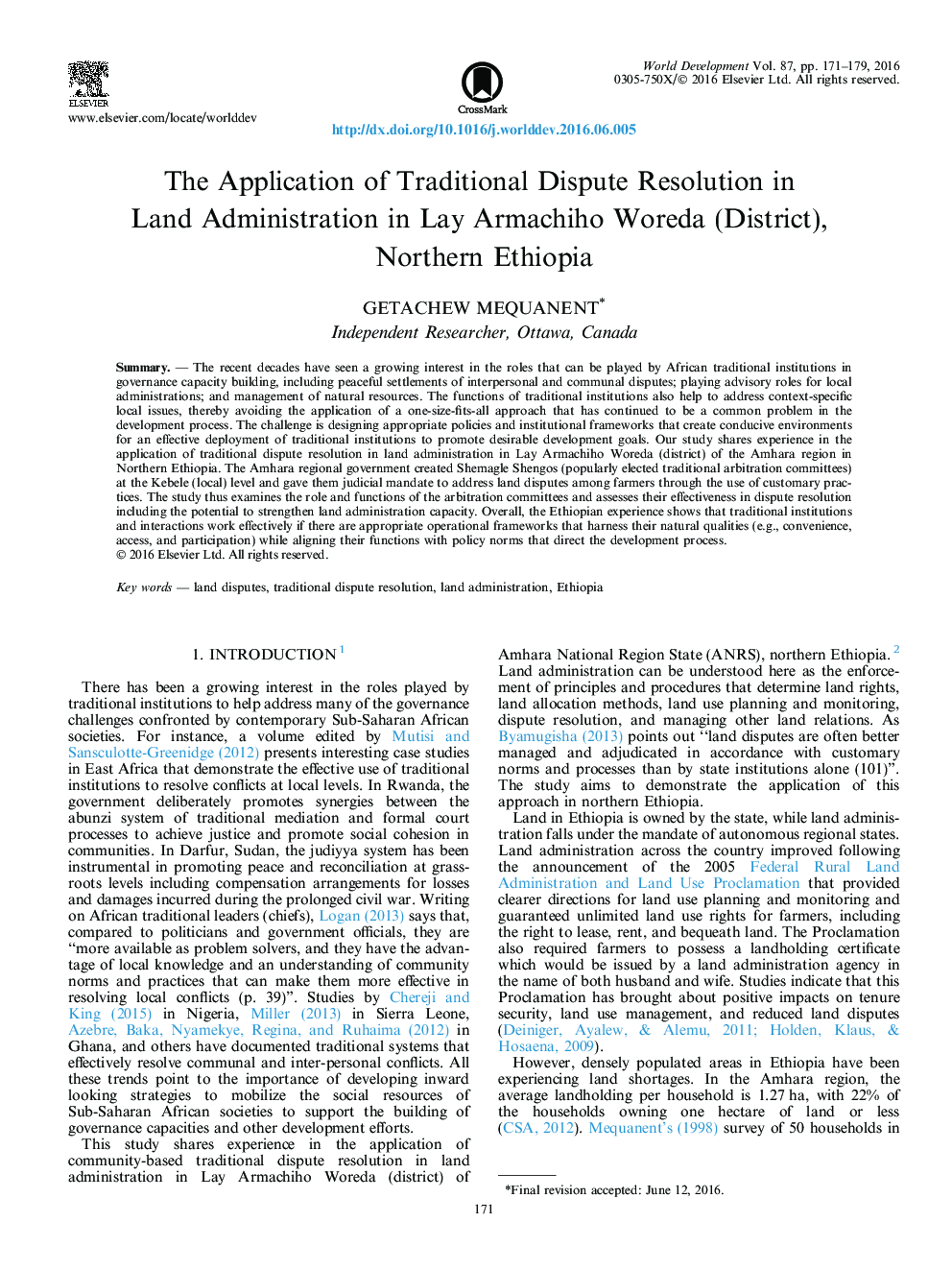| Article ID | Journal | Published Year | Pages | File Type |
|---|---|---|---|---|
| 7392428 | World Development | 2016 | 9 Pages |
Abstract
The recent decades have seen a growing interest in the roles that can be played by African traditional institutions in governance capacity building, including peaceful settlements of interpersonal and communal disputes; playing advisory roles for local administrations; and management of natural resources. The functions of traditional institutions also help to address context-specific local issues, thereby avoiding the application of a one-size-fits-all approach that has continued to be a common problem in the development process. The challenge is designing appropriate policies and institutional frameworks that create conducive environments for an effective deployment of traditional institutions to promote desirable development goals. Our study shares experience in the application of traditional dispute resolution in land administration in Lay Armachiho Woreda (district) of the Amhara region in Northern Ethiopia. The Amhara regional government created Shemagle Shengos (popularly elected traditional arbitration committees) at the Kebele (local) level and gave them judicial mandate to address land disputes among farmers through the use of customary practices. The study thus examines the role and functions of the arbitration committees and assesses their effectiveness in dispute resolution including the potential to strengthen land administration capacity. Overall, the Ethiopian experience shows that traditional institutions and interactions work effectively if there are appropriate operational frameworks that harness their natural qualities (e.g., convenience, access, and participation) while aligning their functions with policy norms that direct the development process.
Keywords
Related Topics
Social Sciences and Humanities
Economics, Econometrics and Finance
Economics and Econometrics
Authors
Getachew Mequanent,
